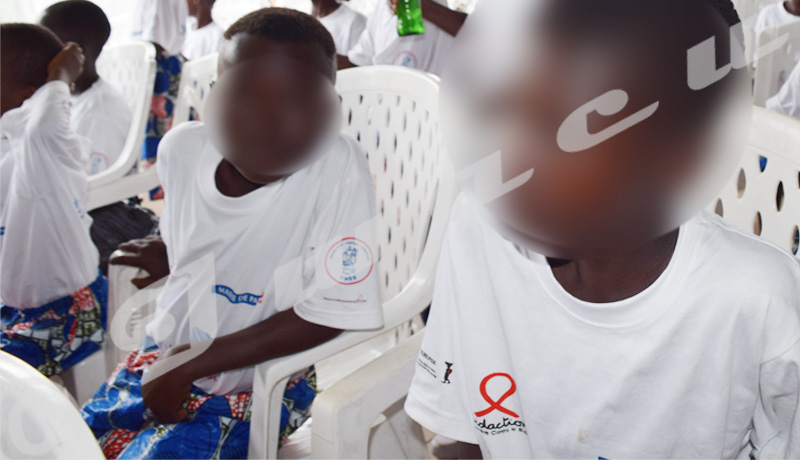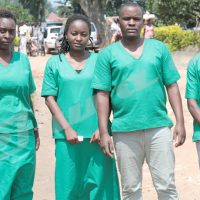On the occasion of the celebration of the World AIDS Orphans’ Day, Burundian AIDS orphans say they are faced with poverty.

AIDS orphans celebrating christmas in 2017
“My parents died of AIDS five years ago. My two little sisters and I live at our aunt’s house. She is poor and cannot afford school fees for us. I had to drop out of school to work as a bartender so that my sisters could continue their studies,” says D. N, a 19 year-old boy. He works in a bar in the north of Bujumbura. He plans to return to school when his younger sisters complete secondary school.
“My youngest sister is studying in grade 8. I will go back to school when she completes secondary school,” he says adding that he dropped out of school after completing grade 10. He is, however, delighted that they live in harmony with their cousins. “Despite this problem, we live in harmony with all members of our aunt’s family,” he says.
He, however, deplores that some neighbors of their aunt discriminate them because they are AIDS orphans.
“Being an AIDS orphan is a problem, living with HIV /AIDS is another problem. AIDS orphans living with this disease face a lot of problems, “says Fabien Ndikuriyo, chairman of the National Network of Young People Living with HIV / AIDS on the occasion of the World AIDS Orphans’ Day.
He regrets that these children who live in foster families are often stigmatized and discriminated. “Some parents are moving these HIVpositive orphans away from their children, fearing that they may contaminate them,” Ndikuriyo explains. He adds that some AIDS orphans do not attend universities as they can’t get someone to pay for them and face problems of lack of health care.
Gordien Iradukunda, the programs manager for the Family to Defeat AIDS, a local NGO, says that orphans are less stigmatized and discriminated compared to the 2000s. After a study conducted, we found that thanks to the community care granted toAIDS orphans living with HIV/AIDS, they are less stigmatized.



















 IWACU Open Data
IWACU Open Data

